Essential
Everyday recipes for home cooks, in a beautiful new cookbook by a Michelin-starred chef.
The best food is always the simplest, whether you are cooking at home or in a restaurant. Michelin-starred chef Ollie Dabbous is here to help home cooks everywhere elevate go-to dishes into something special, through easy techniques, few pieces of equipment, and concise ingredients that work together to create the most delicious flavors.
Organized by ingredient type, from Grains to Shellfish to Sugar and Honey, the 100 recipes in Essential are all basics that Dabbous teaches us how to make just right. Ranging from baked eggs, roasted vegetables, and flatbread to dishes with a bit more flare, like creamy spinach toast, meals made from Essential are sure to wow whomever sits down to eat at the table.
With gorgeous photographs and sleek, elegantly classic design, Essential is the can’t-miss cookbook for home cooks looking to ace their everyday menu.
Ollie Dabbous knew he wanted to be a chef from the age of six, and started cooking as a kitchen hand in Florence when he was fifteen. He worked at Kensington Place for Rowley Leigh, but it was his years spent working with Raymond Blanc at Le Manoir aux Quat’ Saisons that most profoundly influenced his cooking. He went on to be head chef at the Scandinavian-influenced Texture on Portman Street, and has also spent time at Mugaritz, Noma, Hibiscus, L’Astrance, Pierre Gagnaire and WD50. In January 2012 he opened DABBOUS to rapturous reviews, and was awarded a Michelin star within months.
Ollie Dabbous
Any chef will tell you that an important part of their job is to do what needs to be done. And if that involves holding a leaf in front of a light so your buddy can take a picture for your new book you do it. That’s exactly where the amiable Ollie Dabbous owner of London’s Michelin star restaurant Hide found himself. He explained everything when he was nice enough to sit down and talk with us about his new book Essential.
Booksaboutfood.com(BAF): Congratulations on the book. It’s a beautiful project.
Ollie Dabbous: Yeah. Really delighted with the end result. I didn’t really know when I signed the deal with Bloomsbury how the home cookbook would turn out. Because at the time, I was single, working like crazy and didn’t actually really do a great deal of home cooking. But luckily, I’m married with a couple of kids and doing a lot more cooking at home. Sort of see it with fresh eyes. It’s funny, because I’ve only really discovered the pleasures of home cooking in the last few years. But, I still have my perspective colored by my professional experience. So yeah. Hopefully the book gives a little insight into how people can be efficient in the kitchen and hopefully it will lift their confidence a bit.
BAF: Well, that’s one of the things that struck me is that, I’ve been in your kitchen, there’s a lot going on, a lot of complexities and things that I think were probably overwhelming for the home cook. I don’t know a lot of home cooks that have little pipettes filled around, lying around.
Ollie Dabbous: Yeah. Yeah.
BAF: But it seems that you do some great dishes and, I don’t know if simplified is the right word, but made it more accessible for the home cook. You took a lot of simple dishes and elevated them. You found the good, midway point between everything, it seems.
Ollie Dabbous: Yeah. I tried to. I mean, if you cook at home, it’s got to be worth the effort. If you’re going to pick up a pan, pick up a knife, go shopping, washing up, it needs to be worth it. But also, you don’t want to be tied to the stove. So it’s getting that middle ground of something that is worth the effort, but isn’t too much effort that you’re going to hate me for it.
BAF: And certainly, having kids, like you mentioned, as a parent, you want your kid to move beyond chicken nuggets, and certainly as a chef…
Ollie Dabbous: Exactly. But I talk a bit in the book about how food’s a democratic luxury. I think everyone should be able to eat well at home. Some of the tastiest dishes in the world are actually peasant cooking. You don’t need expensive ingredients to eat well. A little bit of know-how, a little bit of confidence goes a long way. So, I want the book to be a bit like me holding the reader’s hand and taking them through the recipe, and sharing that it doesn’t have to be hard. It doesn’t have to be complicated. All my experience and my palette is there at their disposal. It’s all the recipes I’ve tried and tested. So, if they read the recipe in advance, follow it. Also, just use their gut instinct, they should end up with a great result each time.
BAF: You mentioned this a couple times in the introduction was one of the key themes, and philosophies is restraint. And that, simple is better and simple is ironically more complex.
Ollie Dabbous: Yeah. I mean, people think that the more ingredients you add, the more flavor there’ll be, the tastier it’ll be. But actually, you can end up with a very muddled result that way. Yeah, just pairing things back, you get cleaner flavor and also less time in the kitchen, less washing up. So, restraint is something that maybe takes a bit of confidence to do, but the best cuisines in the world are founded on very simple dishes with pure flavors. So it’s sort of taking that philosophy, but incorporating it into a domestic arena.
BAF: Oh, certainly. Well, you touched on it briefly, but when you signed the deal, was this the idea at the time, or were you heading in a different direction?
Ollie Dabbous: No I had no idea what I was going to do! It was funny. We did two books together Bloomsbury, they’re a great partner. So, the first book was Dabbous: The Cookbook. That was an encapsulation of my restaurant at the time. And then, it took a few years…we then closed that restaurant (Dabbous) in order to do Hide. And obviously I had a kid, got married. And there was a few years in between one coming out and then doing the home cookbook, and the pandemic gave me a window of opportunity to do it. And it was also a time when I was cooking more at home anyway, because we had two teams in the restaurant, so people weren’t mixing. So, we’d do five days on and have five days off, while the other team would come in. So, to deliberately try and stop potential impacts of COVID in the early days. So yeah. I was cooking a lot more, and that was good timing. It enabled me to fine-tune the book, and then obviously do the photo shoots and just finesse everything.
BAF: Yeah. Well, there’s certainly some lovely photos of the book as well. Can you talk a little about the photography?
Ollie Dabbous: Yeah, Joakim Blockstrom is the photographer. So, he did my first cookbook and he did all the photos on my Hide website. So, I’ve known him for best part of a decade now, and he’s always wanted to be a photographer. He’s become a good friend over the years. He knows what I like. He’s just very efficient and good at what he does. And there’s a clear, I think, ownership of identify which I like, both in the book and in the food photography he does for the restaurant too. Wanted some backdrops to add a bit of warmth, without it becoming a lifestyle cookbook. And also, was keen… One of the things that we decided on early, actually, was to have some shadows of foliage. Some are more notable than others. They’re not on every dish, but on some of them, they’ll just be a little bit of light shadow. And it just subconsciously gives you the idea that you are sat outside, or that you’re somewhere verdant where there’s trees or plants, potentially eating outside in the summer. And subconsciously that, I think lifts your spirits a little bit.
The other thought process from a design point of view is having a double page spread with text overlaid. You actually have, again, a more spacious and therefore sort of serene setting. So, the text isn’t on white pages, it’s an area of the canvas or worktop that we’ve kept blank. So when we were shooting, we’d shoot the food on… We’d already decided if the food was going to be on the left or on the right. We’d made sure there was ample space on the opposite side for the text to go. For the shadows, it was just me holding up leafs under the lights. as rudimentary as that.
BAF: That’s real high tech stuff there.
Ollie Dabbous: Yeah, exactly, exactly. NASA haven’t been in touch.
BAF: It sounds like you were involved with a lot more design than people normally go into with photography.
Ollie Dabbous: There’s a design editor, Dave Brown of APE Incorporated, and he did an amazing job. I remember, when we brainstormed, it was really useful, because that was verbalizing it to him, helped crystallize things. I wanted a book that wouldn’t date, that wasn’t trendy. If something’s trendy, in five years time, it’ll dated. So, I wanted something that would still look and feel relevant in 30 years from now, something that was elegant and timeless, in that regard. I wanted a warmth, but without it being closeting or like is every lifestyle. So, there needed to be a kind of cleanliness and serenity to the book that was there without becoming sterile or overly Scandinavian or Asian. But, yeah. Delighted with the end result. And yeah, it exceeded my expectations. So it was a great little trio. Obviously, there were others involved as with the styling and editing my words and someone over-seeing the whole project. But from the visual perspective, I was, yeah, really, really happy. And the front cover as well, I think really encapsulates the book.
BAF: It’s just a very simple, again, very simple, straightforward feel to it, look to it. I did get a lot of Scandinavian vibes from it.
Ollie Dabbous: A little bit, a little bit. But, I was going to say, it’s nice when you’re happy with an end result, when you obviously spend a lot of time and emotional investment in it, because you’ve got to live with it for the rest of your life once it’s out there.
BAF: Either that, or change your name.
Ollie Dabbous: Yeah. Yeah, exactly. Exactly.
BAF: Well, I mean, it’s not Scandinavian food. I want to clarify that, but it’s just that simple, again, straightforward look to, and feel to it. Now, you did something interesting with the way you divided up to chapters. You don’t often see a cookbook opening up with grains. And then, everything is almost categorized. Meat, fish, and then you have leaves, sugar and honey, which is interesting.
Ollie Dabbous: I wanted it to be, I guess, ingredient lead. If do starters, mains, desserts, it feels quite restaurant like, and I don’t know how many people often make starters at home, have three course meals. But yeah, I wanted it to have a quite organic, holistic approach. And by segregating it in that manner, it gave me, I guess, different fields to talk about and discuss. So, the chapter introductions and the introduction to the book, I guess, is not my manifesto, but it’s quite nice to talk a bit about your thoughts about food rather than just prescribing recipes, to give overarching thoughts on my likes, my dislikes, things, I think, we do well as a society, things we don’t do well, things we can improve upon. So yeah, hopefully it’s a bit of insight, just so we’re at the appetite before delving into the recipes.
BAF: Well, it’s funny, because when you clicked on, I was in the middle of looking over your Miso Treacle tart. And I started to wonder, how would you categorize something all that because you put it in the sugar section, but with miso, maybe it could be in the larder section. Did things, dishes, like that ever come back to make things tricky to classify?
Ollie Dabbous: Yeah. I was thinking in my head, the larder one was the “get out of jail,” chapter. “Stock up on these things,” and you’ll always have something tasty or stuff that will keep well, or it was something that you could make just with dry goods. Because obviously in the pandemic, there were various shortages and people were having to be a little bit more either frugal or inventive with what they were coming up with. So yeah, just got me thinking about that larder chapter. But yeah, I was happy with what we ultimately decided upon. But it was quite funny because when we were doing the book, the shoot for the book, we did about eight different days shooting. And so, one day, we’d do all the egg chapter or dairy and eggs. The other week, it might be all the grains, maybe meat at one and a half weeks or whatever. But, our food, our lunchtime would be what we’d made that morning. So, we would basically be eating a ton of dairy, a ton of fish, a ton of sweets. I mean, it wasn’t a balanced lunch. I remember the meat one, my God, we needed a nap at the end of it pretty much. It was like Christmas come early.
BAF: Struggle through.
Ollie Dabbous: Yeah.
BAF: That does sounds like a good way to spend the day. I’d be willing to give it a shot.
Ollie Dabbous: Yeah.
BAF: But I will say though, I’ve never come across a chapter devoted to… Nobody’s ever written it down this way, your chapter heading leaves. Which makes perfect sense, but you wouldn’t think of it in those terms.
Ollie Dabbous: Yeah. Yeah. I think they deserved a chapter in their own right. I love salads and their composition, and it’s something that’s very instant for a home cook. There’s simple combinations or preparations that you could do that, maybe a home chef wouldn’t think of, but it’s a very simple, quick, light stuff though. And, there’s more and more people eating healthier these days. There’s more and more folks on vegetables. So, it just felt nice thing to do to give them a center stage, rather than have them incorporated into vegetables. So yeah, it’s nice to elevate something in its own right. And there’s so many different varieties that it was easy to do a chapter.
BAF: The title catches your attention more than just ‘salads’.
Ollie Dabbous: Yeah. Yeah, exactly. Exactly.
BAF: Was it a fun book to write? What was the writing process like for you and how did you cull down the recipes?
Ollie Dabbous: Yeah. It was fun. With cooking in my day to day job at the restaurant, writing isn’t something that I do regularly. Obviously we type up recipes, prep lists. But writing a cookbook, I think focuses the mind a little bit in a way that you don’t necessarily philosophize on a day to day basis when you’re working hard and got a lot of customers to feed. So, yeah. I did enjoy using a part of my brain that I don’t often use. And I tried to do a few recipes each day over the course of a certain period of time. And then, we’d be getting all the prep together and cook them in real time, start to finish, in a domestic setting. It’s important that we didn’t make these dishes in a restaurant, with restaurant ovens or restaurant equipment. They’re generally a lot more powerful than what you have in a domestic one.
So, we always did the final recipe and the final photo shoot with domestic equipment and somewhere where there was good, natural light. That meant leaving the restaurant. So, we’d load up the back of a large people carrier taxi with a lot of boxes of prep, kitchen knives and all these things. And then, we shot it in the summer when you’ve got the most natural light. And then, came back with a lot of washing up and scraps for the guys in the kitchen to try. So, it was a fun process. So yeah. I do look back at it fondly.
BAF: So, we’ve got all this going on, so what’s next for you?
Ollie Dabbous: Well, I’ve always said I’m trying to do less and enjoy it more. Though that never feels like do less. I’m lucky enough to be asked to cook at some quite prestigious events. I cooked last night at Wimbledon tennis club for their members. I’m cooking at Ascot next year. We’ve got a very busy coffee shop called Hideaway, that’s just five minutes from Hide. So we oversee that. So, we’re not looking to do any more restaurants, just be honest. Keeping up with the demand at the moment, Hide has been incredibly busy since we could re-opened our doors. So there’s not too much focus other than keep trying to meet or exceed people’s expectations. It’s Friday today. We’re going to do over 500 covers today across the different floors. It’s 34 chefs today. It’s a big team, big operation. So for obvious reasons, the thought of doing any more of these doesn’t appeal that much.
Ollie Dabbous: Yeah. I can’t remember the last time I went to the cinema. So, I think try and regain a bit of my work life balance. But, going into December, now isn’t the time to do it in hospitality.
BAF: Yeah. No, just push through until January, and then maybe-
Ollie Dabbous: Exactly that. Exactly that.
BAF: Then you can Wander around the area in daylight for a change.
Ollie Dabbous: Yeah. Yeah.
BAF: Great. Well, is there anything I may have missed that you wanted to mention about the book?
Ollie Dabbous: I don’t think so. We’ve covered most of it. I just think it’s really that people know how to eat well and cook for themselves. You don’t have to be amazing, but I think just for your own health and the health of your loved ones. It’s such a key life skill to have. I’d love to see it in more schools. I think if kids learn how to cook at school, there’d be greater value placed on meal times, they respect ingredients more. I think a society that eats well is a civilized society. The ripple effect of people enjoying food and knowing how to cook is much greater than just gastronomic. I think there’s a lot of sociological good that would come from that. So I think it’s in everyone’s best interest to appreciate the ingredients, to appreciate the toil that farmers and fishermen go to. So yeah, just treat them simply with respects and serve them to their loved ones and talk about the food and talk about other things, rather than looking at Instagram, whilst eating something that’s been delivered to your door from down the road. ![]()
Bookskaboutfood.com © 2021


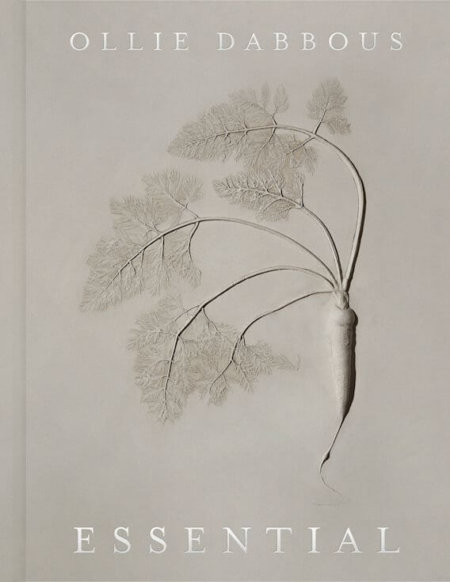


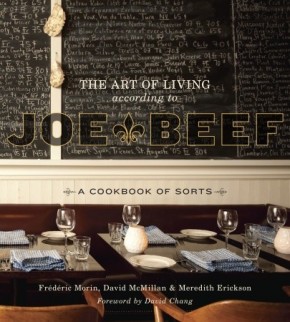
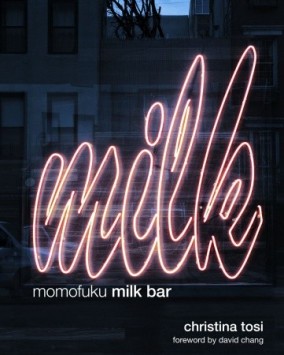
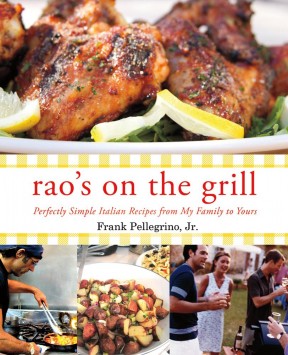
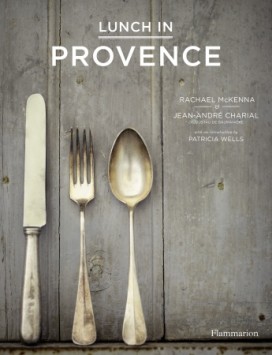
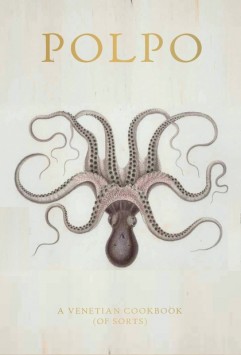
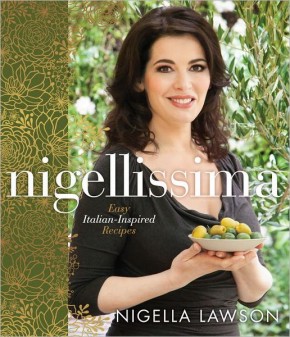
Leave a Reply